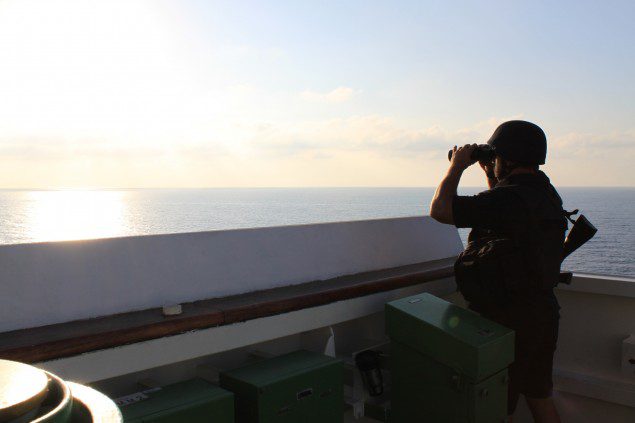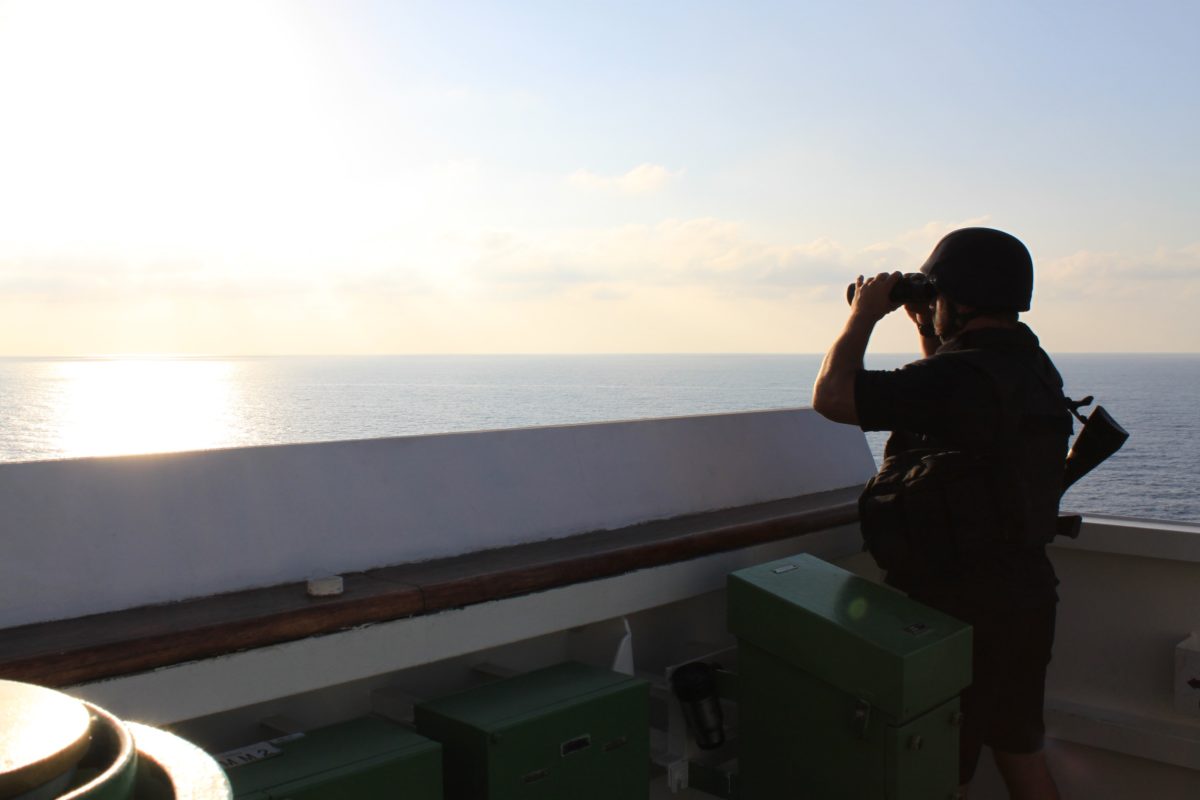
Written by Joshua Nash, SafeGuard Armor
The threat of Piracy is a serious one for many countries, and one that has been taken increasingly seriously. From Government response to media attention, anti-Piracy efforts have become an important focus for many countries. This has had some significant impacts, as Piracy continues to decrease in key areas like the Gulf of Aden; indeed, Somalia has seen almost no reports of Piracy in the last few years.
However, this does not tell the whole story, and even where anti-Piracy methods have been successful, it raises important questions as to what will happen next. Piracy can never be truly eradicated, like any criminal venture, and it is important not to see these successes as definitive. It is also useful to look at the problems associated with these ‘successes’ and how, paradoxically, they can create bigger problems and actually bring about a rise in Pirate activity.
The massive decrease in Piracy around the Eastern coasts of Africa can easily be seen as a triumph, and it is important to celebrate the reduction in attacks. However, African Piracy more generally has not seen the same downturn, and other areas have seen increases in the number of attacks. Where economic and political stability have less stability, Piracy will naturally increase, as will any criminal activity. In Nigeria, for example, Piracy is on the rise. Whether or not this can be attributed to economic factors and the instability caused by groups like Boko Haram is difficult to say, but some have argued directly that this is a factor; the Chairman of the Nigeria Shipowner’s Association, Captain Niyi Labinjo, told Nigerian media that many pirates came from unemployed maritime cadets, who were not given the opportunity to gain the practical experience needed to join the Maritime Academy of Nigeria (MAN) program, leaving them trained for a job they could not undertake. This, he asserts, led many to go into Piracy, and explains the increase in Piracy off the coast of Nigeria. If these trained men and women are becoming involved in Piracy, it may explain why the attacks experienced around Nigeria have been more severe than those typically experienced off the coast of Somalia, particularly when comparing the volume of attacks.
The International Maritime Bureau (IMB) encourages people to remain vigilant even where Piracy has reduced; in Somalia in particular they warn that vigilance is extremely important, as it will only take one successful attack to rekindle Piracy in the area. However, as Piracy reduces some begin to see anti-Piracy methods as unjustifiable. Furthermore, questions begin to be raised as to the overall efficacy of these methods, and to what extent they have attributed to the fall in Piracy in these areas. There is certainly a redistribution and refocus of these assets, as Maritime Security Forces in particular are used in peacekeeping operations.
This refocus for Maritime Security raises the question of whether or not anti-Piracy has ulterior motives. A good case study for this question is China, which has increasingly suffered from Pirate attacks. In the last couple of years Piracy has increased off the coasts of China and Vietnam, perhaps in part due to increased shipping in the area; there have certainly been developments in Chinese Shipping. This highlights the opportunism of Piracy and the difficulties many have had in countering it. Any criminal venture is fuelled by opportunity, which is why the IMB warns against a lack of vigilance, and why it is important that any decline in Piracy is not seen as a permanent trend towards eradication.
In order to combat Piracy, China has begun to work with Djibouti in establishing a Chinese naval base from which anti-Piracy patrols and operations can be launched. By having a base of operations in the Gulf of Aden the Chinese Government can ‘police’ the wide swath from the Suez Canal and into the Indian Ocean. The use of the word ‘police’ underscores the imperialist overtones associated with anti-Piracy methods, and the additional political and strategic benefits afforded to the host countries. This is evidenced by the Chinese Foreign Minister’s efforts to downplay the strategic benefits of their new naval base, which naturally has strong imperialist connotations. Indeed, it has been noted that these anti-Piracy patrols and operations help ‘to increase their [the host country’s] presence, influence and leverage in the region.’
By looking at China and the increase of Piracy in the area we can note two things: firstly, that economic growth can lead to an increase in Piracy. As South East Asia and South America continue to grow and forge new global economic links, so too do the opportunities for Piracy increase. Secondly, that there are strong connections between anti-Piracy efforts and the strategic interests of the countries in question. This is not to say that the efforts undertaken to combat Piracy were done so solely for selfish purpose, but it does lead one to ask what effect these missions will have after the decline of Piracy.
There is a concern that joint anti-Piracy work will deteriorate, leading to a degradation of the co-operation and unity that was cultivated in the face of a common enemy. This is of particular concern for those countries involved that are less economically and politically stable, as the more ‘prosperous’ (for want of a better word) countries focus their resources on other problems. This may indeed bring about an increase in Piracy among poorer states as Pirates also refocus their efforts. The implication here is that not everyone benefits from these joint operations, and this again brings into question the efficacy of anti-Piracy measures in the first place.
This can again be understood better by looking at China. Following the surge in Piracy, there has been an effort to look at ways to counter it. Established anti-Piracy forces are not particularly attractive to China, as they are operated largely by those seen as rivals to China, and there is a fear that US led initiatives in particular would look to limit Chinese influence in wider matters. In response, China has opted for a unilateral approach to Piracy by furthering their military into the South China Seas for example. This puts neighbouring and even far flung countries in a precarious position, as they must in effect choose between two different sides in order to combat Piracy.
This is a very simplistic way of looking at the issue, but it helps in establishing the division that helps Piracy flourish. The matter is further complicated by the impending expiry of the mandates of several Western anti-Piracy forces. While these patrols can be renewed, the changing context of the states involved may lead them to look elsewhere, or worse simply neglect Piracy altogether because of the perceived ‘success’ thus far.
The conclusion one can draw here is that a fractured global community leads to several problems. Firstly, crime is by its very nature opportunistic and parasitic, and the division noted will inevitably lead to an increase in Piracy despite individual attempts to counter it. Indeed, it is these individual attempts that lead to a shift in focus for Pirates, and negatively impact those countries that were once involved. The answer to the problem of Piracy is a difficult one, and the areas involved are so widespread and unique that there can be no ‘one size fits all’ solution. However, it is important that if nothing else any decreases in Piracy are not seen as complete victories and that the international shipping community is ever vigilant for the threat of Piracy.
SafeGuard Armor is an international manufacturer and distributor of body armor that provides industry-standard information to people in a number of professions. Josh regularly writes for SafeGuard and provides guides to body armor for various different situations.

 Join The Club
Join The Club












